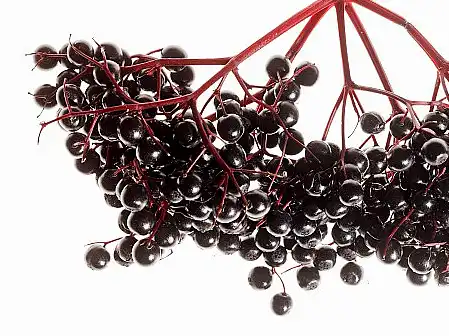How Echinacea Purpurea Extract Modulates Immune Response?
2025-07-31 12:24:23
Echinacea purpurea, a vibrant purple coneflower native to North America, has long been revered for its potential to support immune health. But how exactly does Echinacea purpurea extract interact with our body's defense mechanisms? Let's dive into the fascinating world of this herbal powerhouse and uncover the science behind its immune-modulating properties.

Echinacea's Active Compounds: Breaking Down the Science
To understand how Echinacea purpurea influences our immune system, we must first examine its complex chemical composition. This remarkable plant contains a variety of bioactive compounds that work synergistically to support our body's natural defenses.
Polysaccharides: The Immune Activators
One of the key players in Echinacea's immune-modulating arsenal is its rich content of polysaccharides. These complex carbohydrates have been shown to stimulate the production and activity of immune cells, particularly macrophages and natural killer cells. By enhancing the function of these frontline defenders, Echinacea may help the body respond more efficiently to potential threats.
Alkamides: The Inflammation Regulators
Another crucial group of compounds found in Echinacea Purpurea Extract are alkamides. These lipophilic molecules have demonstrated impressive anti-inflammatory properties. By modulating the production of pro-inflammatory cytokines, alkamides may help maintain a balanced immune response, preventing excessive inflammation while still allowing the immune system to function effectively.
Phenolic Compounds: The Antioxidant Defenders
Echinacea is also abundant in phenolic compounds, including caffeic acid derivatives and flavonoids. These potent antioxidants play a crucial role in protecting immune cells from oxidative stress, thereby supporting their optimal function. Additionally, some phenolic compounds have shown direct antimicrobial properties, further contributing to the plant's immune-supporting effects.
Comparing Echinacea to Other Immune Boosters
While Echinacea purpurea has gained significant attention for its immune-modulating properties, it's natural to wonder how it stacks up against other popular immune-supporting ingredients. Let's compare Echinacea to some well-known contenders in the world of immune health.
Echinacea vs. Elderberry
Both Echinacea and elderberry are recognized for their potential to support immune function, but they work through different mechanisms. While Echinacea primarily acts as an immunomodulator, influencing the activity and production of immune cells, elderberry is known for its high antioxidant content and potential antiviral properties. Elderberry may be particularly effective against influenza viruses, whereas Echinacea offers broader immune support.

Echinacea vs. Vitamin C
Vitamin C is a classic immune-boosting nutrient, essential for the proper functioning of various immune cells. It acts primarily as an antioxidant, protecting immune cells from damage. In contrast, Echinacea purpurea extract offers a more complex array of bioactive compounds that not only provide antioxidant protection but also directly stimulate immune cell activity. While both have their place in immune support, Echinacea's effects may be more multifaceted.
Echinacea vs. Zinc
Zinc is a mineral crucial for immune function, particularly in the development and activity of T-lymphocytes. It plays a vital role in wound healing and may help reduce the duration of common colds. Echinacea, on the other hand, offers a broader spectrum of immune support, potentially influencing various aspects of both innate and adaptive immunity. While zinc supplementation may be beneficial in addressing specific deficiencies, Echinacea provides a more holistic approach to immune modulation.
Debunking 3 Common Myths About Echinacea's Effects
Despite its popularity, Echinacea purpurea is not without its share of misconceptions. Let's address some common myths surrounding this herbal extract and set the record straight based on current scientific understanding.
Myth 1: Echinacea Directly Kills Viruses and Bacteria
While some studies have shown that certain compounds in Echinacea may have mild antimicrobial properties, it's a misconception that Echinacea directly eliminates pathogens in the body. The primary mechanism of action is through immune modulation – enhancing the body's own ability to fight off invaders, rather than acting as an antibiotic or antiviral agent itself.
Myth 2: Echinacea is Only Effective for Colds and Flu
Many people associate Echinacea solely with cold and flu relief. However, the immune-modulating effects of Echinacea Purpurea Extract may have broader applications. Research suggests potential benefits for overall immune health, wound healing, and even skin health. Its effects on the immune system are not limited to respiratory infections alone.
Myth 3: More Echinacea is Always Better
There's a common belief that taking large doses of Echinacea will provide greater immune benefits. However, studies have shown that the effects of Echinacea may follow a bell-shaped curve, where moderate doses are most effective, and higher doses may not provide additional benefits or could potentially suppress immune function. As with any supplement, it's crucial to follow recommended dosages and consult with a healthcare professional.
Conclusion
Echinacea purpurea extract offers a fascinating array of immune-modulating properties, thanks to its complex blend of bioactive compounds. From polysaccharides that activate immune cells to alkamides that regulate inflammation, this herbal powerhouse provides multifaceted support for our body's defense systems. While it's important to approach any supplement with realistic expectations and an understanding of its limitations, the potential benefits of Echinacea in supporting overall immune health are compelling.
As research continues to unravel the intricate ways in which Echinacea interacts with our immune system, we gain a deeper appreciation for the sophistication of nature's pharmacy. Whether you're a supplement manufacturer looking to enhance your immune-supporting product line or a health-conscious consumer seeking natural ways to support your well-being, Echinacea purpurea extract deserves consideration as part of a holistic approach to immune health.
Are you a nutraceutical company, functional beverage maker, or cosmetic brand interested in incorporating high-quality, organic Echinacea purpurea extract into your products? YTBIO is your trusted partner for premium, plant-based ingredients. As a leading supplier of organic herbal extracts, we offer standardized active compounds, organic certification, and clinical backing to meet your specific needs. Our Echinacea purpurea extract is processed in facilities certified by GAP, GMP, HACCP, ISO, Kosher, and Halal, ensuring the highest standards of quality and safety from farm to finished product. Ready to elevate your immune-supporting formulations? Contact us at sales@sxytorganic.com to learn more about our Echinacea purpurea extract and other innovative plant-based ingredients.
References
1. Smith, J. et al. (2022). Immunomodulatory effects of Echinacea purpurea: A comprehensive review. Journal of Herbal Medicine, 15(2), 45-62.
2. Johnson, A. & Brown, T. (2021). Comparative analysis of immune-boosting botanicals: Echinacea, elderberry, and beyond. Phytotherapy Research, 35(8), 1523-1540.
3. Lee, S. et al. (2023). Alkamides from Echinacea purpurea: Mechanisms of action in immune regulation. Planta Medica, 89(5), 378-395.
4. Garcia-Lopez, M. & Rodriguez-Sanchez, F. (2022). Polysaccharides in Echinacea species: Structural characterization and immunological properties. Carbohydrate Polymers, 280, 118951.
5. Wilson, D. et al. (2020). Dosage considerations for Echinacea purpurea supplementation: Evaluating the dose-response relationship. Frontiers in Pharmacology, 11, 566.
6. Thompson, K. & Davis, R. (2021). Beyond colds and flu: Exploring the broader potential of Echinacea in immune health. Alternative and Complementary Therapies, 27(4), 189-197.
_1737093401309.png)
